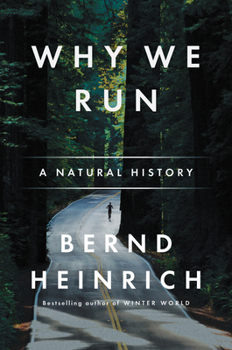Why We Run: A Natural History
Select Format
Select Condition 
Book Overview
"Each new page is] more spellbinding than the one before--this is surely one of the most interesting books I've ever read."--Elizabeth Marshall Thomas, author of The Hidden Life of Dogs
When Bernd Heinrich decided to write a memoir of his ultramarathon running experience he realized that the preparation for the race was as important, if not more so, than the race itself. Considering the physiology and motivation of running from a scientific point of view, he wondered what he could learn from other animals.
In Why We Run, Heinrich considers the flight endurance of birds, the antelope's running prowess and limitations, and the ultra-endurance of camels to understand how human physiology can or cannot replicate these adaptations. With his characteristic blend of scientific inquiry and philosophical musings, Heinrich offers an original and provocative work combining the rigors of science with the passion of running.






